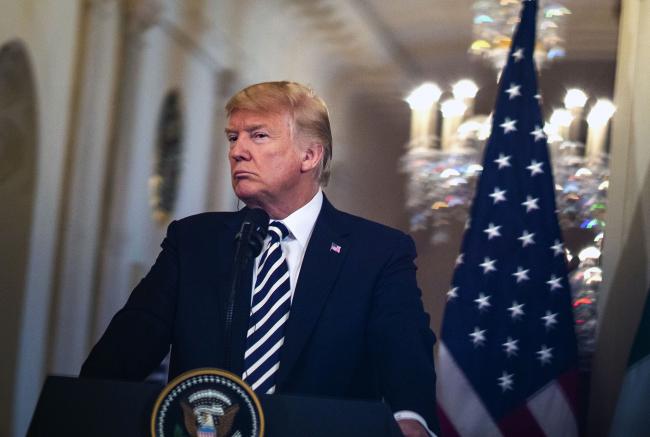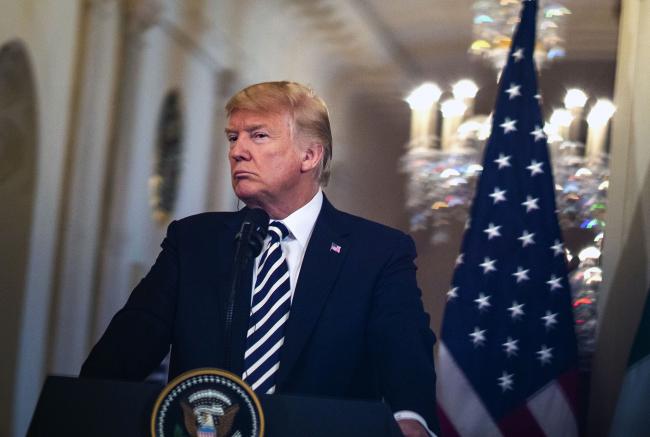 © Bloomberg. U.S. President Donald Trump Photographer: Al Drago/Bloomberg
© Bloomberg. U.S. President Donald Trump Photographer: Al Drago/Bloomberg(Bloomberg) — The Federal Reserve probably will be more inclined to cut interest rates now that President Donald Trump has followed through on his threat to increase tariffs on U.S. imports from China. But it won’t rush into doing so.
While the higher levies will put upward pressure on inflation by raising import prices, the central bank will likely be more attentive to the potential drag they’ll exert on the economy by depressing consumer and business spending, Fed watchers said.
“We would expect the Fed to initially focus on the growth implication and look past the inflation impact,’’ Michael Feroli, chief U.S. economist at JPMorgan Chase & Co (NYSE:). in New York, said in a May 7 note to clients.
Fed funds futures on Friday showed traders are fully pricing in a cut within the first few months of next year. That’s several months earlier than it was indicating a week ago, before Trump’s weekend tweets on tariffs. Meanwhile, a key part of the Treasury yield curve that many see as a recession sign, briefly went negative on Thursday.
On its own, the increase in import levies to 25% from 10% on $200 billion of Chinese goods shouldn’t have that much of an impact on U.S. gross domestic product. Feroli reckoned that the direct hit to growth would be about 0.2 percentage point.
What will be critical for the economy and the Fed is how the financial markets react to the heightened trade tensions and how that response — and the uncertainty surrounding the issue — affects business confidence and investment, according to Deutsche Bank (DE:) Securities chief economist Peter Hooper.
Equity markets slumped this week as investors’ hopes for a trade deal dimmed. Overall financial conditions though remain supportive of growth, albeit less so than they were a week ago.
Krishna Guha, head of central bank strategy at Evercore ISI, cautioned investors against expecting a quick rate reduction by the central bank’s Federal Open Market Committee in the wake of Trump’s tariff increase.
“We do not see the Fed as inclined to take out immediate insurance against market/growth weakness associated with trade escalation, with the committee starting from a position in which it has just reaffirmed that it is not close to cutting rates,’’ he said in a May 9 note to clients.
What Bloomberg’s Economists Say
“Assuming there’s no speedy resolution and higher tariffs remain in place, forecasts for global growth will be shaded down, with the main blow landing on China and its Asian neighbors.”Tom Orlik, chief economist at Bloomberg EconomicsFor the full note click here
Fed Chairman Jerome Powell and his colleagues left interest rates unchanged last week, defying Trump’s call for a cut, and said they would be patient in deciding what action to take going forward.
“We don’t see a strong case to move rates in either direction,” Fed Vice Chairman Richard Clarida told Bloomberg Television on Tuesday, echoing a comment made last week by Powell.
Clarida said that the trade conflicts had “only had a very modest effect on the economy” last year.
He added though that the central bank will “certainly’’ take trade developments into account in setting policy in the future.
Fusion Media or anyone involved with Fusion Media will not accept any liability for loss or damage as a result of reliance on the information including data, quotes, charts and buy/sell signals contained within this website. Please be fully informed regarding the risks and costs associated with trading the financial markets, it is one of the riskiest investment forms possible.

